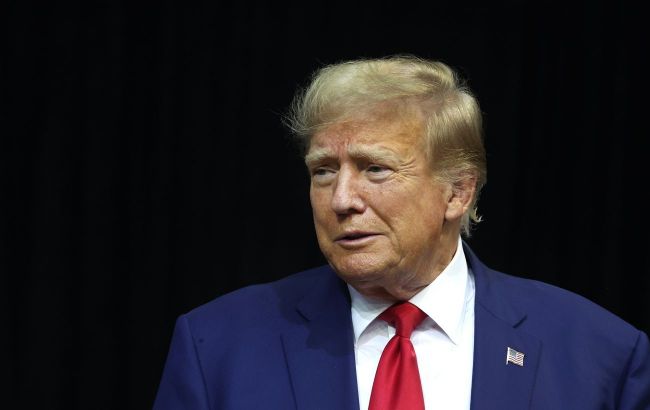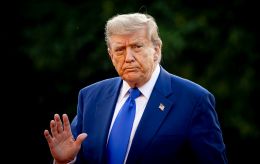Economic bluff or strategy? Political analyst explains why Trump imposes massive tariffs
 Photo: US President Donald Trump (Getty Images)
Photo: US President Donald Trump (Getty Images)
US President Donald Trump recently imposed tariffs on imported goods for all of the country’s trading partners. This could slow down the global economy, states political analyst Oleh Saakian in a comment to RBC-Ukraine's YouTube channel.
"He (Trump - ed.) is currently engaging in blackmail on one hand, while on the other, he is slowing down the global economy. Both of these actions could have a positive effect for him. The key is not to overdo it. Slowing down the global economy and its pace is essentially an acknowledgment that the United States has missed the train that left without them. China is developing its economy, as are other countries, at a much faster rate than the US. And now, if they can’t catch up, what should they do? That’s right — slow everyone else down," the political analyst noted.
In his opinion, this is exactly what the US is doing right now. Moreover, going forward, the US will cooperate with those who yield to them and break under the pressure of Trump’s tariffs.
"They are trying to secure better conditions for themselves and reshuffle the deck. Will they succeed? I strongly doubt it, because at the same time, a whole range of situational alliances are being formed to minimize Trump’s pressure," Saakian explained.
The political analyst believes that not all countries will "bend" under Trump's tariffs, which is another factor to consider. He also pointed out that the largest market is not the American one but the European one. Some companies and governments are more likely to seek compensation in the European market. If the US-European economic conflict escalates further, they will have to make a choice, as losing the European market would be worse for them than losing the American one.
Saakian noted that the European market is currently more stable and predictable, whereas in the US, "you accept the terms today, and tomorrow you’ll be presented with new ones."
"In Europe, you might already lose your place. Just like with Canada and Mexico, with Greenland, in the Middle East, where Trump has achieved nothing, and in the Russia-Ukraine war, where he has also failed to achieve anything — I believe that Trump’s team is highly likely to miscalculate here as well. They are raising the stakes and bluffing at a time when everyone already understands that this is just bluffing, and it’s not working," he emphasized.
According to the political analyst, it will become clear whether this strategy has benefited the US when goods start disappearing from supermarket shelves in the country.
"This is the timeframe Trump has to twist others' arms — until the effects start showing on the US domestic market. When he loses the ability to procure something for the oil industry, for certain developments, or for the military-industrial complex, the average American won’t feel it — it’s too distant for them," Saakian explained.
But it’s a different story when the average American sees the price of milk double or finds no toilet paper in the supermarket, along with other basic necessities they are used to. These will be the clearest markers for them of whether the government is handling the situation or not.
"Trump has this time horizon. For some goods, the impact may take a few months, for others up to six months, and for some, it could be just weeks. When the market starts reacting to Trump’s actions, the consequences will hit both sides — not only the US's partners but, first and foremost, the United States itself," he stressed.
US trade war
On Tuesday, April 2, US President Donald Trump signed an order imposing tariffs on imports from many of the country’s trading partners. According to the document, tariffs have significantly increased for some countries: 34% for China and 20% for the European Union.
The US has also introduced a 25% tariff on all automobiles assembled in other countries.
For Ukraine, a 10% tariff has been imposed. According to Deputy Prime Minister and Minister of Economy of Ukraine Yuliia Svyrydenko, these tariffs are not critical for Ukraine.
"What do the new US tariffs mean for Ukraine? Challenging, but not critical. We will be subject to a general tariff of 10%. There is no separate higher one, such as Moldova's 31% or the EU's 20%, for Ukraine," Svyrydenko stated.

